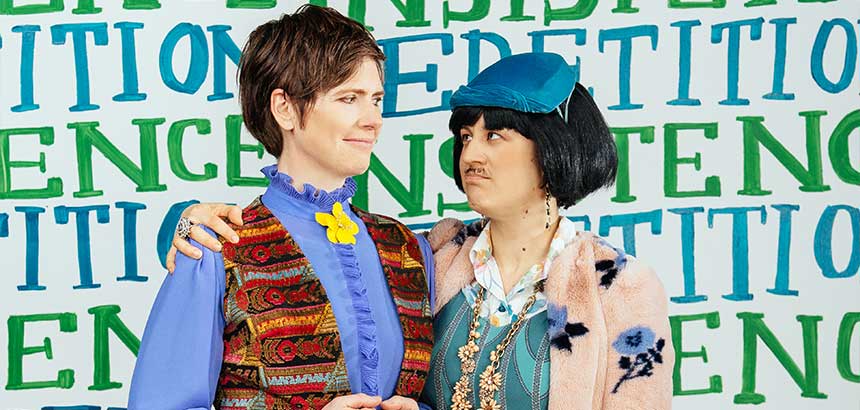“One day when Picasso was to lunch with us I decorated a fish in a way that I thought would amuse him. I chose a fine striped bass and cooked it according to a theory of my grandmother who had no experience in cooking and who rarely saw her kitchen but who had endless theories about cooking as well as about many other things. (1.) This was the year 1907. Gertrude Stein was just seeing through the press Three Lives which she was having privately printed, and she was deep in The Making of the Americans, her thousand page book. Picasso had just finished his portrait of her which nobody at the time liked except the painter and the painted…” (2.)
This amuse-gueule, tap-happy googlers will discover, is an amalgame. The first sentence arrives via The Alice B. Toklas Cook Book, the second from her Autobiography.
Her.
Who is her? The one a friend of the food writer M.F.K. Fisher said had a black moustache that made other faces seem nude? The one who cooked while the other wrote. The one who remained post mortem: ate to sustain, at a table for one, while a colourful pageant of modernist art looked down, millionaires all, redeemed from poverty and obscurity by her resilience and grit. And her good taste. Who knew?
Her.
Pronouns. If I knew them. Would they like it? Would they like it, this modern art of ours for erasing the gender lines? Would they? They. Singular or plural? Amuse bouche.
Would they like it? Would they know it? How much as a woman, as a feminist, as a trans person? Would they? How much her work has informed me? As a cook, as writer, as one whose own autobiographical play DragonFly puts the into the mouth of her the actor I wrote the play for and him the actor who plays her after she transitions.
She was a genius she often told us. And was, for a time, as has been said for some time: famous for being famous. Though she might have said: famous for being so.
Her.
How quickly pronouns reform the tyranny of proper names, roles, and labels. What kept them apart, distinguished and extinguished their plurality. And made a hearse of hers were the stuffy signifiers; when they become some thing to each other. Famous writer and secretary-companion instead of just letting her be. Murderous euphemisms and bloody, bloodless ceremony. Engage with the sycophancy of the 18th-century novel with its dedications to lords and patrons and pomp, and in a flash you will see her, hear what she saw, and see what she meant.
They should have named a hurricane after her.
She thought men better but they sat at her feet. She thought the he of her made her a genius and the she of her made her wise. Do I care?
I saw this remarkable play last time out. It grabs something of her and returns it. They are incredible. Both of her.
- The Alice B. Toklas Cook Book by Alice B. Toklas.
- The Autobiography of Alice B. Toklas by Gertrude Stein.
photo by Tanja-Tiziana

